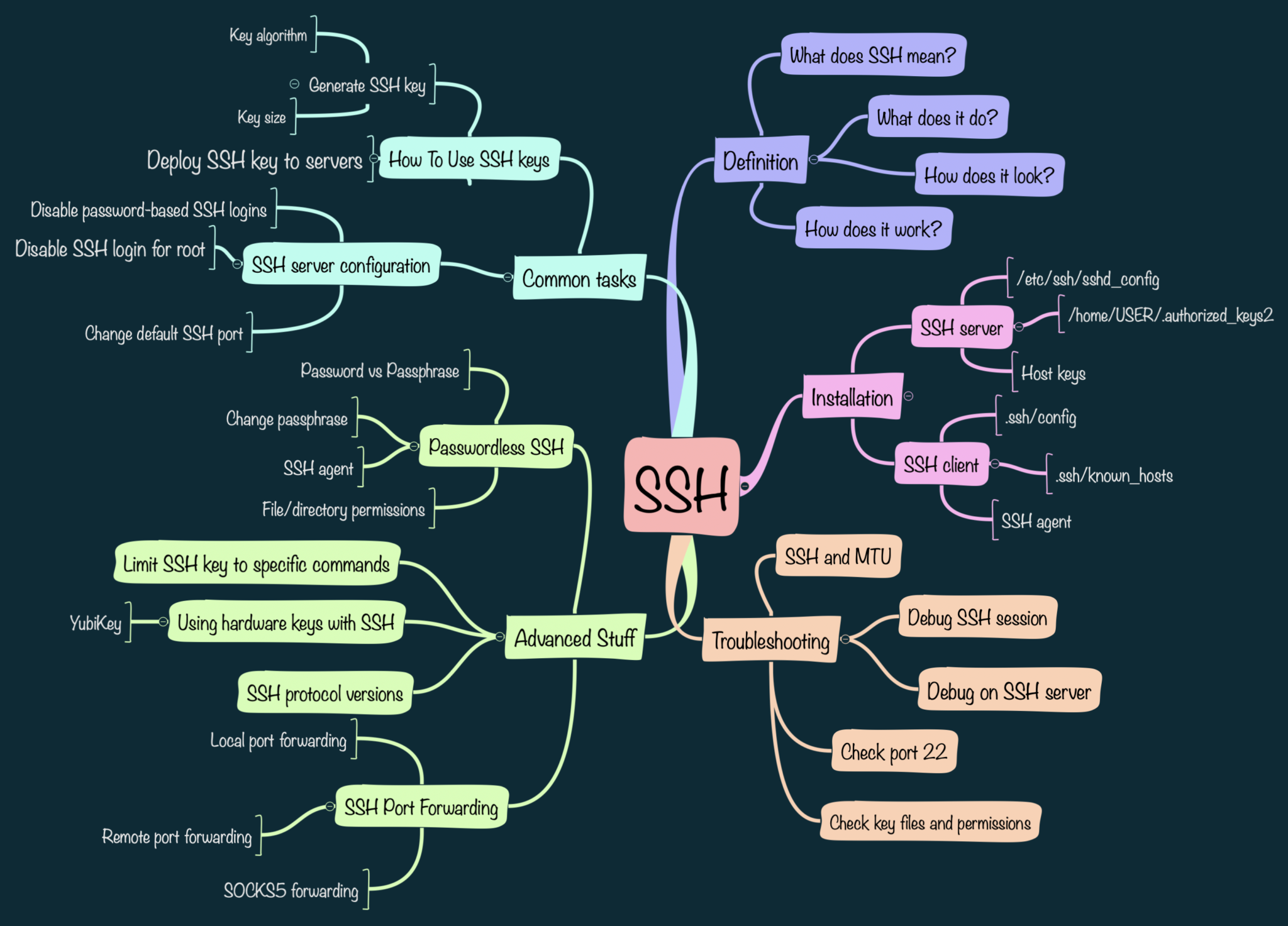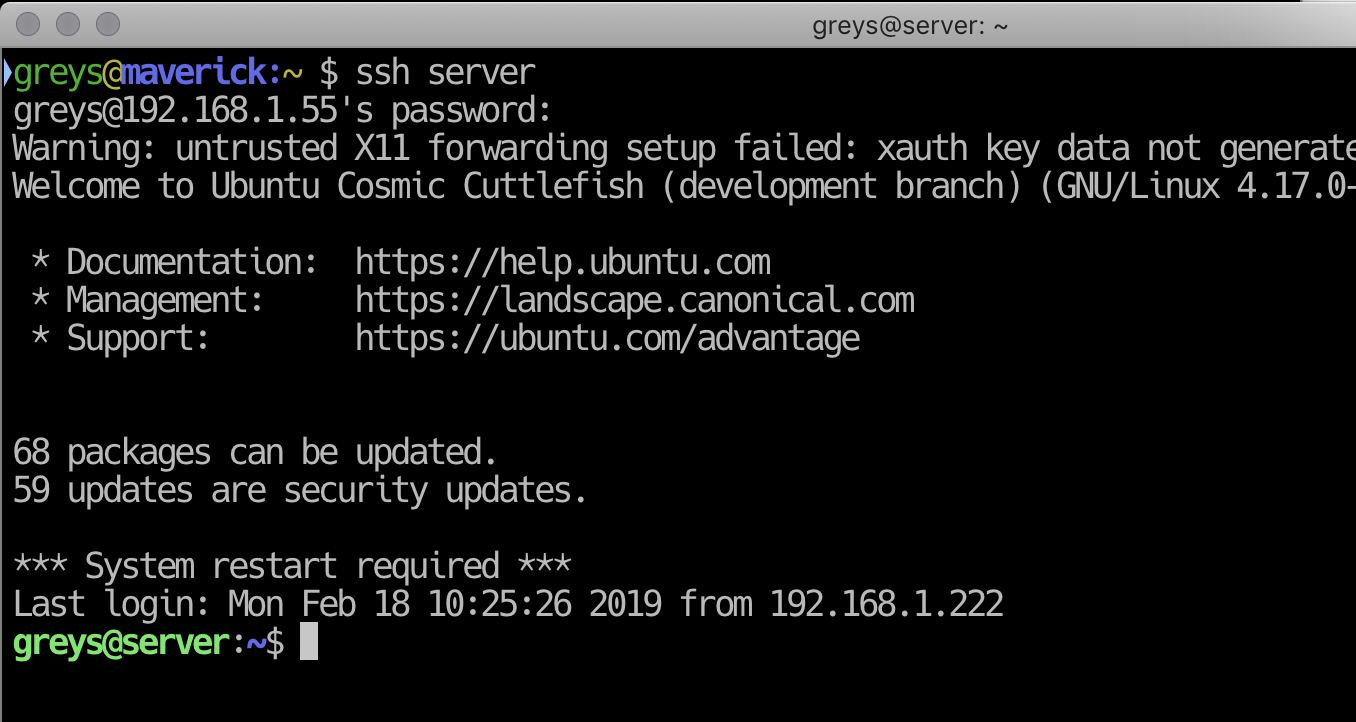SSH Reference

SSH Reference Mindmap
This mindmap summarises areas of SSH knowledge and shows what I’m planning to add to this SSH Reference mage in the coming months.
I will seel an e-book version of this page available in the Unix Tutorial Books section (and will share it with certain tiers on the Unix Tutorial Patreon page).
What is SSH?
SSH (Secure SHell) is a network protocol for secure communication to Unix and Unix-like operating systems. SSH allows you to remotely manage Linux/Unix servers via command line. When you run the ssh command or invoke any SSH client, you will need to provide username and password of a user on the remote Linux server, to then be presented with the command line as if you were working directly and locally on that server.

SSH Protocol Versions
There are two protocol versions of SSH:
- SSH version 1
- SSH version 2
SSH Components
As a software product, SSH usually consists of three components.
SSH Server
ssh server is a binary called sshd that runs SSH service on default SSH port 22 and accepts secure connections on the server side.
SSH client
ssh client in its simplest form is the ssh command – you type it and specify remote SSH server hostname or IP address to start a secure remote access session. If username and password (or SSH key) are accepted by the SSH server, you’ll be given a command line prompt.
ssh command is the client side of id, while sshd (openssh server) is the server component.
You can generate an SSH keypair and protect it with SSH passphrase.
SSH utilities
These days SSH packages come with quite a number of super useful little tools:
- scp/sftp for copying files
- ssh-keygen for SSH key management
- ssh-agent for managing SSH keys in memory and forwarding them to remote sessions. Useful in combination with passwordless SSH.
Useful Information on SSH
What TCP port is utilized by an SSH server listening for connections?
Default SSH port is 22. You can change SSH port by editing the SSH server config file /etc/ssh/sshd_config and restarting SSH service.
Troubleshooting SSH
Host Key Verification Failed
This error message is a standard enough scenario when you’re connecting to a recently rebuilt server – its host SSH keys changed and so you’re asked to exercise caution. How to fix Host Key Verification Failed error.
For practical usage and command-line examples, see the SSH command page.
See also
Overview & Basics
SSH Keys & Authentication
- How To: Generate SSH Key
- How To: Generate ed25519 SSH key
- How To: Change SSH key passphrase
- How To: Inspect SSH key fingerprints
- How To: Find SSH key using Fingerprint
- Project: Upgrading RSA keys to Ed25519
- SSH Agent and How to Use It
- Deploy Your SSH key To Remote Server
Passwordless SSH
SSH Port & Configuration
- SSH port
- SSH port forwarding
- How To: Check SSH Port Status
- Test SSHd config on a different SSH port
- Using Multiple SSH Ports
- Most Important sshd Configuration Options
- Ubuntu SSH: How To Enable Secure Shell in Ubuntu
Troubleshooting
Advanced Topics
- Important SSH server configuration options
- Using multiple SSH ports
- How To: Check SSH key fingerprint
- id – print user identity






